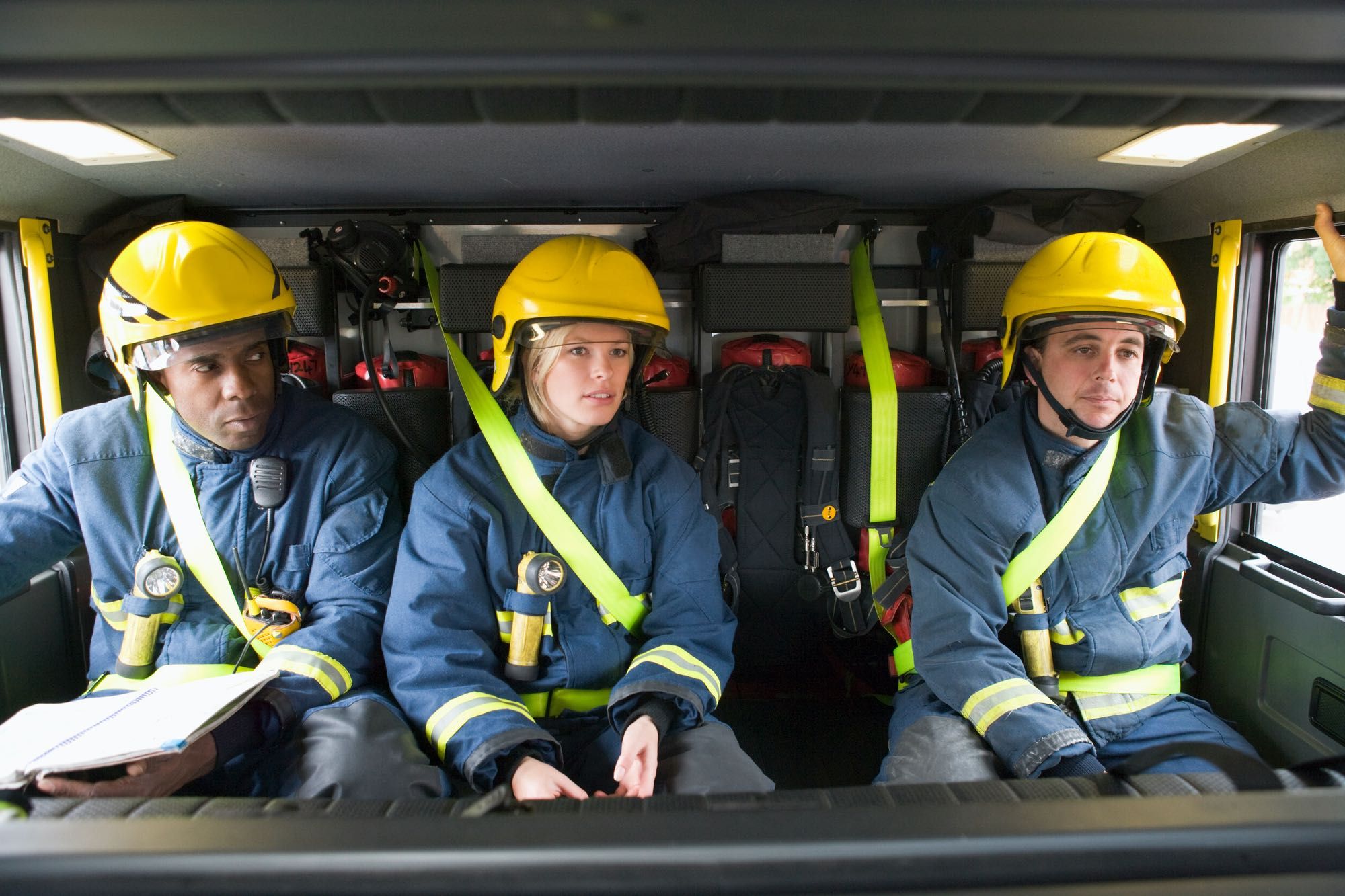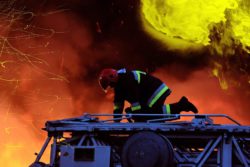Top Class Actions’s website and social media posts use affiliate links. If you make a purchase using such links, we may receive a commission, but it will not result in any additional charges to you. Please review our Affiliate Link Disclosure for more information.
Nearly twenty years after the World Trade Center terrorist attacks, those suffering from cancer stemming from the 9/11 terrorist attacks continue to file claims with the Victim Compensation Fund.
Congress enacted the Victim Compensation Fund “to provide compensation for any individual (or a personal representative of a deceased individual) who suffered physical harm or was killed as a result of the terrorist-related aircraft crashes of Sept. 11, 2001 or the debris removal efforts that took place in the immediate aftermath of those crashes.”
First-responders and others who lived or worked in the area have reported a variety of illnesses associated with the attacks, including cancer.
Many of those diagnosed with cancer as a result of their 9/11 exposure have passed away, while others have incurred astronomical medical bills getting treatment. People diagnosed with cancer after Sept. 11, 2001, may be entitled to recover compensation from the fund. This might be the only way for people impacted by a 9/11 cancer to obtain proper treatment for their condition.
Unfortunately, we may see many more victims and first responders develop serious or even deadly cancers in this coming years, as cancers like asbestos lung cancer can take decades to develop, according to NBC News.
What Is the WTC Health Program?
The World Trade Center (WTC) Health Program provides treatment for certain mental and physical health conditions determined to be caused by exposure to the 9/11 attacks. These include 9/11 cancer types as well as associated health conditions.
The list is updated as experts learn more about the impact of 9/11 exposure on health. General medical disorders recognized by this program include acute traumatic injuries, aerodigestive disorders, and cancer. As of August 2018, nearly 10,000 people were reported to have gotten cancer from exposure to toxic dust from the 9/11 attacks, per the New York Post.
What Can I Receive?
The WTC Health Program can provide 9/11 cancer victims with treatment for their cancer or other health condition caused by the terrorist attacks and their aftermath. Individuals may also be able to recover monetary compensation from the Victim Compensation Fund, which was recently extended to 2090.
What Are 9/11 Cancer Types?
The WTC Health Program’s list of 9/11-related health conditions includes a variety of cancer types, including:
- Blood and lymphoid cancer (non-Hodgkin lymphoma, leukemia, myeloma, etc.)
- Digestive system cancer (colon, esophagus, liver, rectum, stomach, etc.)
- Eye cancer (cornea, orbit, retina, etc.)
- Female breast cancer
- Head and neck cancer (sinuses, tongue, mouth, gum, larynx, lip, tonsil, etc.)
- Female reproductive organ cancer (ovary)
- Respiratory system cancer (lung, heart, pleura, etc.)
- Skin cancer (melanoma and other malignant neoplasms)
- Soft tissue cancer
- Thyroid cancer
- Urinary system cancer (bladder, kidney, prostate, ureter, etc.)
- Mesothelioma (pericardium, peritoneum, pleura, etc.)
- Childhood cancers cancer
According to the Victim Compensation Fund’s policies, any condition certified for treatment by the WTC Health Program is eligible for payment under the fund. Other conditions may be eligible for compensation if they were treated by a private physician and verified through the fund’s Private Physician process.
Are There Any Rare Cancers Covered by the Program?
Cancer that’s diagnosed in fewer than 15 cases per 100,000 people a year is considered rare. These rare cancers could still be certified as 9/11 cancer types. Some have already met the threshold rate for rare cancers, including male breast cancer, pancreatic cancer, bone cancer, and adrenal cancer.
Those with cancers not currently on the WTC Health Program list may still be entitled to compensation from the Victim Compensation Fund if the cancers are certified at a later date. If you or loved one have been affected by any of the cancers on this list, an experienced attorney can advise you about next steps.
What Else Is Covered?
The WTC Health Program and Victim Compensation Fund also provide coverage for non-cancerous conditions including:
- Acute traumatic injuries (burns, complex sprains, eye injury, fractures, head trauma, tendon tear, etc.)
- Various lung and digestive conditions (asthma, gastroesophageal reflux disorder (GERD), reactive airways dysfunction syndrome (RADS), and more)
- Mental health conditions (anxiety disorder, depression, panic disorder, post-traumatic stress disorder (PTSD), substance abuse, and more)
- Musculoskeletal disorders (only for WTC responders)
 What Impact Is COVID-19 Having on the Victim Compensation Fund and the WTC Health Program?
What Impact Is COVID-19 Having on the Victim Compensation Fund and the WTC Health Program?
The Victim Compensation Fund is operational as of April 9, 2021, but there could be delays in the processing of claims, and some changes have been made to the process. Payments are continuing to be processed every day as normal.
However, all in-person hearings have been canceled until further notice. Hearings regarding compensation are being completed over the phone for the time being, and eligibility hearings are being conducted by video conferencing software.
The WTC Health Program recognizes that some program members have certain health conditions that may make them at a higher risk of contracting COVID-19, the coronavirus that is infecting the world. Certain cancers, including 9/11 cancer types, and respiratory illnesses such as asthma or COPD, may place a person at an increased risk of severe illness from COVID-19.
In order to prevent as many patients as possible from having to visit a clinic in person, the WTC Health Program has approved the use of telehealth services for members to talk on the phone or through a video app in order to receive care for certified WTC-related health issues.
The WTC Health Program will cover limited COVID-19 testing and needed care for any member with certain certified WTC-related conditions that place them at a greater risk of complications from the coronavirus.
“Treatment for COVID-19 is covered when certain criteria are met, including that the member was eligible for COVID-19 testing, the treatment is authorized by the Program, and the treatment is not experimental,” according to the CDC’s WTC Health Program website.
Experts Say Fund Essential for Those with 9/11 Cancer During Pandemic
VCF Fund payouts and health care coverage are doubly important for those with 9/11 cancer types during the ongoing COVID-19 crisis, according to a lawyer who represents thousands of recipients. He told WSHU Public Radio that the knowledge that their families will be taken care of financially is keeping many 9/11 survivors going.
According to WHSU, the most common cancers and other illnesses suffered by 9/11 survivors are respiratory in nature. Since COVID-19 is known to attack the respiratory system, 9/11 survivors are reportedly more at risk of suffering severe complications.
In addition, those who have had to undergo chemotherapy to treat cancer they developed from exposure to toxins during or after 9/11 face an even greater risk, according to WHSU.
Experts say that 9/11 survivors, along with their families and other members of their immediate households, need to be extra cautious as the pandemic continues. They should be sure to follow all public health mandates and regulations, including social distancing, wearing a mask, and washing their hands.
VCF-Type Fund In the Works for Coronavirus Essential Workers
Modeled after the September 11 Victim Compensation Fund, the Pandemic Heroes Compensation Act was introduced to Congress in early March 2021, nearly a full year after COVID-19 began sweeping across the country. The Pandemic Heroes Compensation Act would provide compensation to essential workers and their families who became ill or died as a result of COVID-19.
How Much Can I Recover From the VCF?
The WTC Health Program will provide free healthcare for victims with certified conditions. Exact payments from the Victim Compensation Fund will vary depending on the treatment needed and other factors.
Previously, the amount awarded by the Victims Compensation Fund may have been reduced due to dwindling funds. However, on July 29, 2019, the “Never Forget the Heroes: James Zadroga, Ray Pfeifer, and Luis Alvarez Permanent Authorization of the September 11th Victim Compensation Fund” was officially signed into law. This extends the Victim Compensation Fund through Oct. 1, 2090 and ensures that the fund will receive as much money as needed to fully pay all approved claims.
Navigating the complex and burdensome paperwork and strict deadlines to participate in the 9/11 Victim Compensation Fund can be difficult. An experienced 9/11 Victim Fund attorney can help and ensure you get the maximum compensation available.
If you were present near Ground Zero, generally considered to be Lower Manhattan below Canal Street, between September 11, 2001 and May 31, 2002, and were diagnosed with cancer 4 years or more after exposure (or 1 year or more for blood and bone cancers), you may qualify for compensation.
Submit your information now for a free, no-obligation review of your potential 9/11 cancer fund claim.
ATTORNEY ADVERTISING
Top Class Actions is a Proud Member of the American Bar Association
LEGAL INFORMATION IS NOT LEGAL ADVICE
Top Class Actions Legal Statement
©2008 – 2024 Top Class Actions® LLC
Various Trademarks held by their respective owners
This website is not intended for viewing or usage by European Union citizens.
Get Help – It’s Free
Free 9/11 Cancer Fund Claim Evaluation
If you qualify, a September 11 Victim Compensation Fund attorney will contact you to discuss the details of your potential claim at no charge to you.
PLEASE NOTE: If you want to participate in this investigation, it is imperative that you reply to the law firm if they call or email you. Failing to do so may result in you not getting signed up as a client or getting you dropped as a client.
Oops! We could not locate your form.


 What Impact Is COVID-19 Having on the Victim Compensation Fund and the WTC Health Program?
What Impact Is COVID-19 Having on the Victim Compensation Fund and the WTC Health Program?










